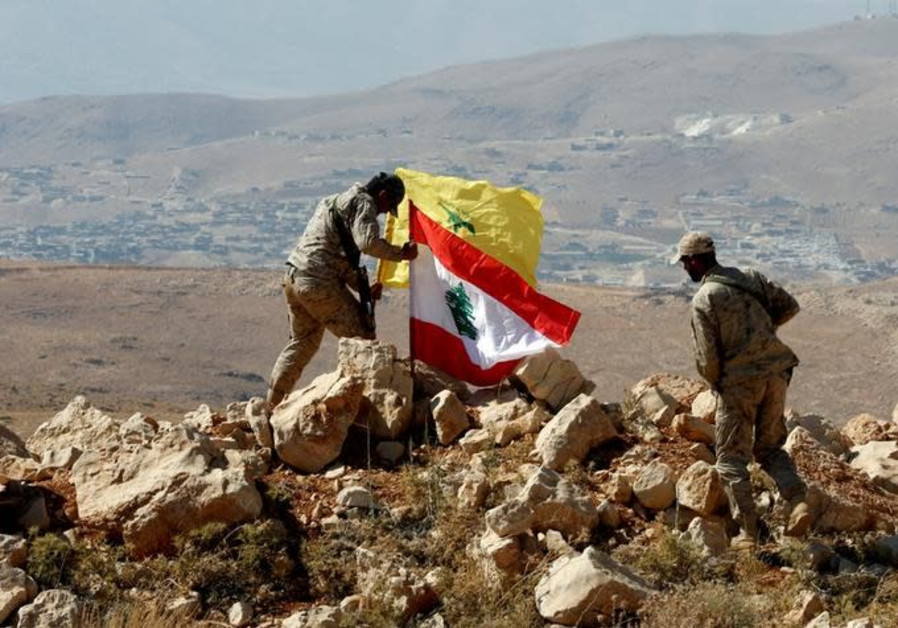The Syrian regime has regained 70% of the country with the help of Russian air power and Iranian-backed foot soldiers.

Years after Bashar Assad’s regime lost southern Syria to rebels and jihadist groups, government forces, backed by Iranian militias and Hezbollah, are pushing deep into a strategically located rebel-held enclave along Israel’s northern border.
After seven years of deadly civil war that has involved superpowers and dozens of rebel and jihadist groups, the Syrian regime has regained 70% of the country with the help of Russian air power and Iranian-backed foot soldiers.
The offensive on Beit Jinn – near the rebel-held city of Quneitra along the Israeli border – has Israel concerned. It is part of Assad’s push to reassert control of the remaining rebel-held areas of the countryside west of Damascus.
Iranian entrenchment on the Golan Heights, an area of key strategic importance, has concerned Israel since the start of the Syrian conflict. But according to Lt.-Col. (res.) Mordechai Kedar, a researcher at the Begin Sadat Center for Strategic Studies, Israel can tolerate Assad’s presence on the Golan – so long as Iran and Hezbollah steer clear.
Israel “cannot tolerate the Iranians and its tentacles, like Hezbollah, to establish themselves on the Golan,” he said. “The question isn’t what the Syrian regime is doing, the question is, is it a cover for Iran and Hezbollah to create ‘Hezbollah-land’ on Israel’s border.”
Seven years after Syria’s disintegration began, the day-after scenario for the country is not black and white. With the endgame in Syria looking to favor Assad, Israel fears the Alawite dictator’s victory will strengthen Iran’s foothold in the Golan and see the deployment of hostile Shi’ite militias, including Hezbollah forces, along its border.
“The situation today is that Syria is breathing from the lungs of other countries,” Kedar said. “The full name of Syria is ‘the Syrian Arab Republic.’ But is it really still Arab and Syrian, or is it sustained by Russia, Turkey and Iran?”
From Israel’s point of view, he said, out of all the possible victors in Syria – Assad, Iran or the jihadists – Assad is the lesser of three evils.
Israeli defense officials have repeatedly voiced concern over the growing Iranian presence on its border and the smuggling of sophisticated weaponry to Hezbollah – from Tehran to Lebanon via Syria – stressing that both are red lines for the Jewish state.
Israel has carried out at least 100 strikes targeting Hezbollah fighters, weapons convoys and infrastructure in Syria since January 2013, preventing what Prime Minister Benjamin Netanyahu says would be “game-changing weaponry” from falling into the hands of the guerrilla organization.
Israel is believed to be behind dozens of more air strikes, including one on an alleged Iranian military base in al-Kiswah, outside Damascus, earlier this month.
Officials have also warned that the IDF would not allow Iran to establish a military foothold within 40 kilometers of the border, and “the Iranians understand this,” Kedar told The Jerusalem Post.
Reuters reported that Hezbollah and other Iranian-backed militias were playing a role in the Beit Jinn offensive. But according to Aymenn al-Tamimi, a research fellow at the Middle East Forum, there is currently no major Hezbollah or Iranian presence.
“It’s possible Hezbollah is playing a role, though the information is scant. But this is still not the same as leading the offensive,” he said, adding that the “main forces leading it are the 4th and 7th divisions of the Syrian army with local militia support.”
Tamimi said the main foreign militias playing a role in the offensive were the Iraqi “Liwa al-Imam al-Hussein” and the “Death Battalion,” embedded in 4th division of the Syrian army. Nonetheless, the offensive is “led by Syrian army divisions and is a logical extension of the government’s campaign to regain the West Damascus countryside.
“I do think the Iranians want a long-term presence in southern Syria. But I don’t think every move by the government to reclaim an area in southern Syria should be seen through that lens,” he said.
As reported by The Jerusalem Post
